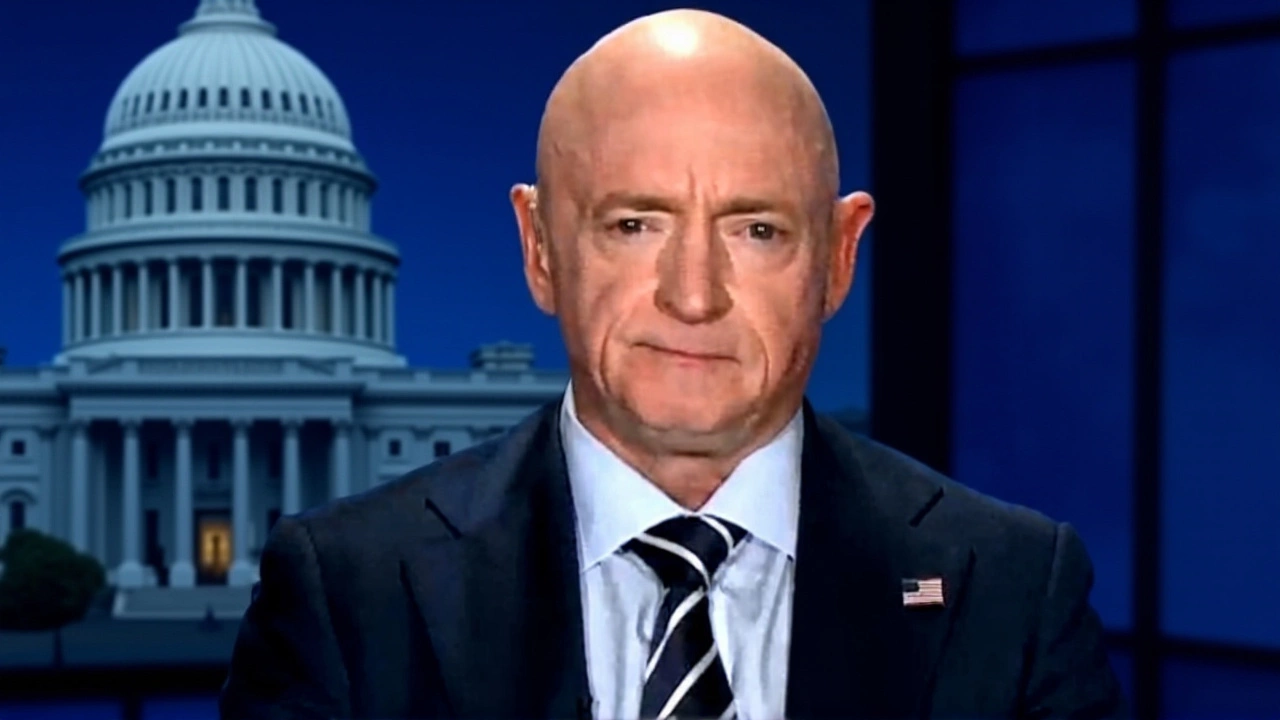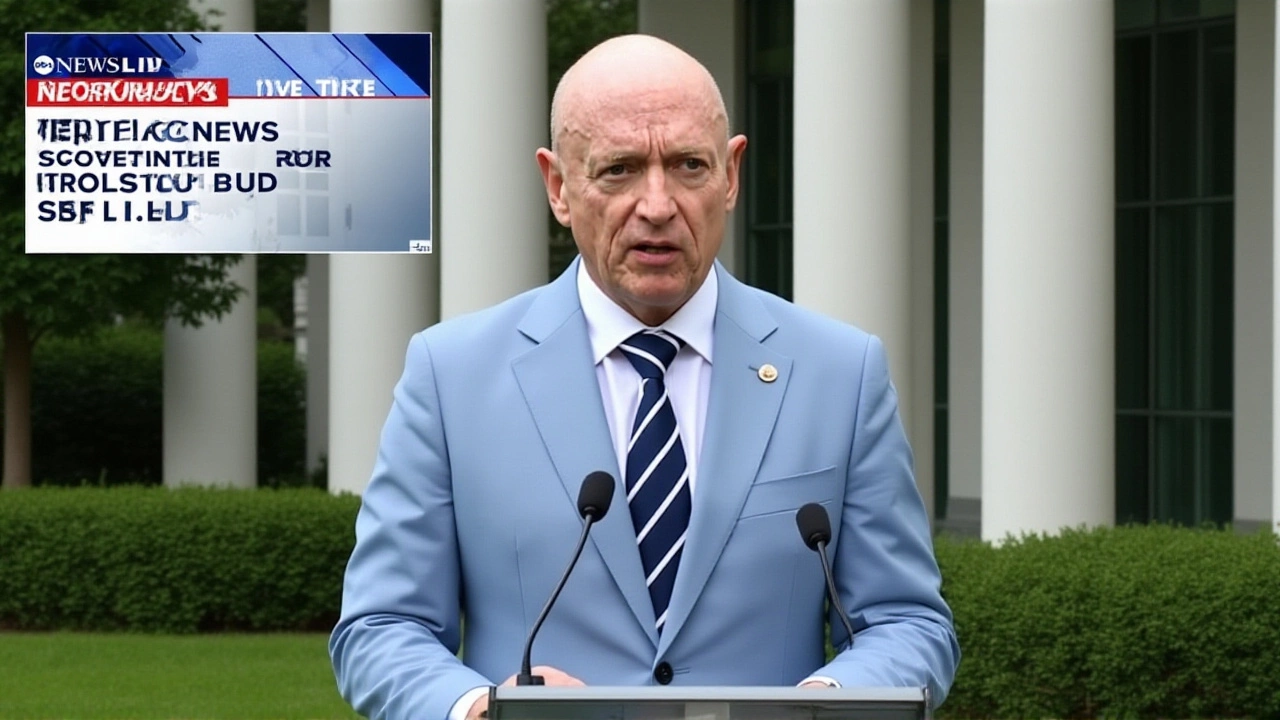When Mark Edward Kelly, a 61-year-old retired U.S. Navy captain and sitting U.S. Senator from Arizona, posted a video urging military personnel to refuse illegal orders, he didn’t expect the Pentagon to come knocking. But on November 24, 2025, the Pentagon announced it was launching a formal investigation under the Uniform Code of Military Justice — not against a soldier, not against a general, but against a sitting member of Congress. The twist? Kelly’s military status never fully expired. And that’s what makes this unprecedented.
What Happened in the Video?
During the week of November 17–21, 2025, six Democratic lawmakers, including Kelly, released a joint social media video. In it, they told service members: “No one has to carry out orders that violate the law or the Constitution. We have your back.” The message was meant as a reassurance — a constitutional safeguard against potential abuses of power. But in today’s political climate, even well-intentioned words can be weaponized. The Pentagon’s response was swift. Defense Secretary Pete Hegseth, who’s presided over controversial military actions in the Caribbean, directed the investigation. The Department of Defense cited federal law prohibiting actions that “interfere with the loyalty, morale, or good order and discipline of the armed forces.” And here’s the kicker: they’re treating Kelly’s statement as if it were a direct order to mutiny — not a public statement of principle.Why Kelly? The Military Retiree Exception
The other five lawmakers in the video? Civilians. No military ties. No UCMJ jurisdiction. But Kelly? He’s a retired Navy pilot with over 20 years of active service. Even after retirement, former officers remain subject to the Uniform Code of Military Justice under certain conditions — especially if their actions could undermine military discipline. That’s why the Pentagon zeroed in on him. CNN reported on November 25, 2025 that the Pentagon could even recall Kelly to active duty — not as a senator, but as a retired officer — to face a court-martial or administrative punishment. That’s not just unusual. It’s nearly unheard of in modern American history.Trump’s Reaction: “Sedition Punishable by Death”
The political firestorm exploded over the weekend of November 22–23, 2025, when former President Donald J. Trump went on a tirade during a rally. He called the six lawmakers “traitors,” accused them of “sedition at the highest level,” and said they “should be in jail right now” — adding, “punishable by DEATH.” Kelly, on November 23, 2025, appeared on CBS’s “Face the Nation” and said: “What the president said is very serious. I didn’t think he would step over that line… His words carry tremendous weight… because of what he says, there is now an increased threat against us.” The White House didn’t back away. Press Secretary Caroline Levit confirmed on November 24, 2025 that the administration “is supportive of the Department of Defense’s investigation.”
Constitutional Crossroads
This isn’t just about one video. It’s about where the line is drawn between civilian authority and military obedience. The Constitution gives Congress the power to make rules for the armed forces — but it also forbids the executive branch from using the military to intimidate legislators. That’s the bedrock of civilian control. Retired U.S. Army Lieutenant General Mark Hertling, speaking on MSNBC’s Deadline White House on November 24, 2025, called the investigation “a dangerous precedent.” He said: “If you can investigate a sitting senator under military law for speaking out — even if you disagree with him — you’re eroding the separation of powers. This isn’t about discipline. It’s about silencing dissent.” Kelly, in an interview with MS NOW on November 24, 2025, responded bluntly: “Secretary Heg’s tweet is the first I heard of this. If this is meant to intimidate me and other members of Congress from doing our jobs… it won’t work.”What Comes Next?
The investigation could take months. The Pentagon hasn’t said whether it will recall Kelly to active duty — a move that would effectively suspend his Senate duties. If they do, it would trigger a constitutional crisis. Who decides? The President? The Secretary of Defense? The Senate? The courts? Meanwhile, Senator Ruben Gallego, Kelly’s Democratic colleague, signaled strong support during a CNN segment on November 25, 2025, though his full remarks were cut short. The Senate Judiciary Committee has not yet scheduled a hearing — but pressure is mounting.
Historical Context: Has This Ever Happened Before?
Not in modern times. The last time a sitting member of Congress faced military discipline was during the Civil War, when Rep. Clement Vallandigham was court-martialed for anti-war speeches — only to be exiled by President Lincoln. That sparked outrage. Congress passed a law in 1863 explicitly barring the military from prosecuting civilians. Kelly isn’t a civilian. But he’s not on active duty, either. He’s a hybrid — a veteran who still answers to the UCMJ, yet holds a constitutional office. That legal gray zone is exactly what the Pentagon is now testing.Frequently Asked Questions
Can the Pentagon legally investigate a sitting U.S. Senator under military law?
Legally, yes — but only because Mark Kelly is a retired officer still subject to the Uniform Code of Military Justice. The UCMJ applies to retirees in certain circumstances, especially if their actions could disrupt military discipline. But no sitting member of Congress has ever been investigated under military law for public speech. This creates a constitutional conflict between legislative immunity and military jurisdiction — a conflict the courts would almost certainly have to resolve.
What’s the difference between refusing an illegal order and inciting disobedience?
Refusing an illegal order is a legal right under military law — even required. But encouraging others to refuse orders, especially in a public, politicized context, can be interpreted as undermining command authority. The Pentagon argues Kelly’s video crossed that line by naming specific groups (military and intelligence) and offering political backing. Critics say it’s protected speech under the First Amendment. The distinction hinges on intent, audience, and context — and there’s no clear precedent.
Could Kelly be recalled to active duty? What would that mean?
Yes. Under Title 10, Section 688, the Secretary of Defense can recall retired officers to active duty for court-martial proceedings. If that happens, Kelly would be stripped of his Senate duties and subjected to military justice — potentially facing prison time. No senator has ever been recalled like this. It would force the Senate to either suspend him or challenge the Pentagon’s authority — a direct clash between branches of government.
Why is President Trump’s rhetoric so central to this case?
Because his threats — calling for execution and imprisonment of lawmakers — have been documented and amplified by official channels. Kelly cited those remarks as the reason for increased threats against him. In legal terms, that could constitute incitement or intimidation of a public official. While Trump’s comments aren’t part of the Pentagon’s formal charges, they’re shaping the environment in which the investigation is occurring — and could be used later to argue the probe was politically motivated.
What’s at stake for military morale and civilian control?
If the Pentagon punishes a senator for affirming the military’s duty to refuse unlawful orders, it sends a chilling message: speak up, and you risk being treated as a threat. That could erode the very foundation of military ethics — which teaches service members to obey lawful orders, but resist illegal ones. Conversely, if the investigation is dropped, it may embolden future calls for disobedience in politically charged contexts. The balance is fragile.
Is this investigation politically motivated?
The timing is suspicious. The video was posted on November 19. Trump’s death threats came on November 22. The Pentagon announced the investigation on November 24 — the same day the White House endorsed it. Retired generals and legal scholars have questioned whether this would have happened if the video had been released by Republican lawmakers. Without independent oversight, the appearance of political targeting is unavoidable — and that’s damaging to public trust in both the military and Congress.

Write a comment